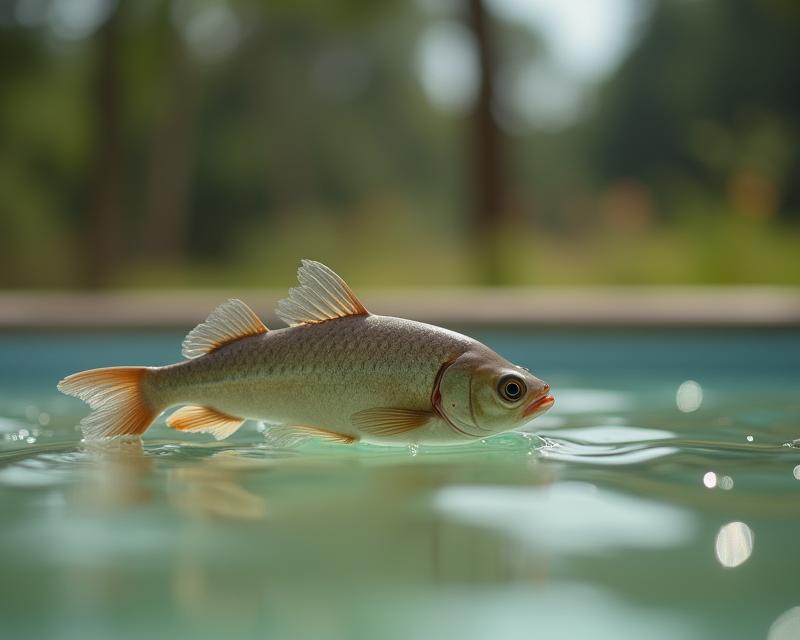Fish Rehab: Healing Fins in an Unexpected Place!
Publish in Health el 28/06/2025 19:24
Fish Rehab: Healing Fins in an Unexpected Place!
It might sound strange, but even fish can benefit from physical therapy! We often think of physical therapy for dogs and cats recovering from injuries, but sometimes our aquatic companions need a little help too. Recently, a pet fish at a local animal shelter underwent a unique rehabilitation program – right in the dog run area! This isn't a typical setup, but it highlights the dedication of animal care professionals to providing the best possible care for all creatures.

So, how does a fish even get injured? It's less about dramatic accidents and more about subtle issues. Sometimes, fish can injure themselves on decorations in their tank, experience fin rot due to poor water quality, or even suffer from stress-related muscle weakness. In this particular case, the fish sustained a minor fin injury. The shelter staff noticed the fish wasn't swimming as gracefully as usual and was struggling to keep up with the other fish in its community. They immediately sought advice from a veterinarian specializing in aquatic animals.
The physical therapy involved a carefully monitored environment. The fish was placed in a shallow, clean tank within the dog run area (with strict barriers, of course!). The water parameters were meticulously controlled, and the fish received gentle exercises designed to strengthen its fins and improve its swimming ability. These exercises included slow, controlled swimming patterns and gentle currents to encourage muscle movement. The goal wasn't to force the fish to overexert itself, but to gradually rebuild strength and range of motion. The team also focused on improving water quality to prevent further complications and promote healing.
This story is a great reminder that even seemingly simple pets need attentive care. If you notice any changes in your fish's behavior – such as unusual swimming patterns, lethargy, or fin damage – it's important to consult with a veterinarian experienced in aquatic animal health. Early intervention can make a huge difference in recovery. And while a dog run might seem like an odd place for rehab, it just goes to show that compassionate care can be found in the most unexpected places! Providing a healthy environment, monitoring water quality, and being observant of your fish's well-being are key to a long and happy life for your finned friend. Remember to research the specific needs of your fish species to ensure you're providing the best possible care.





